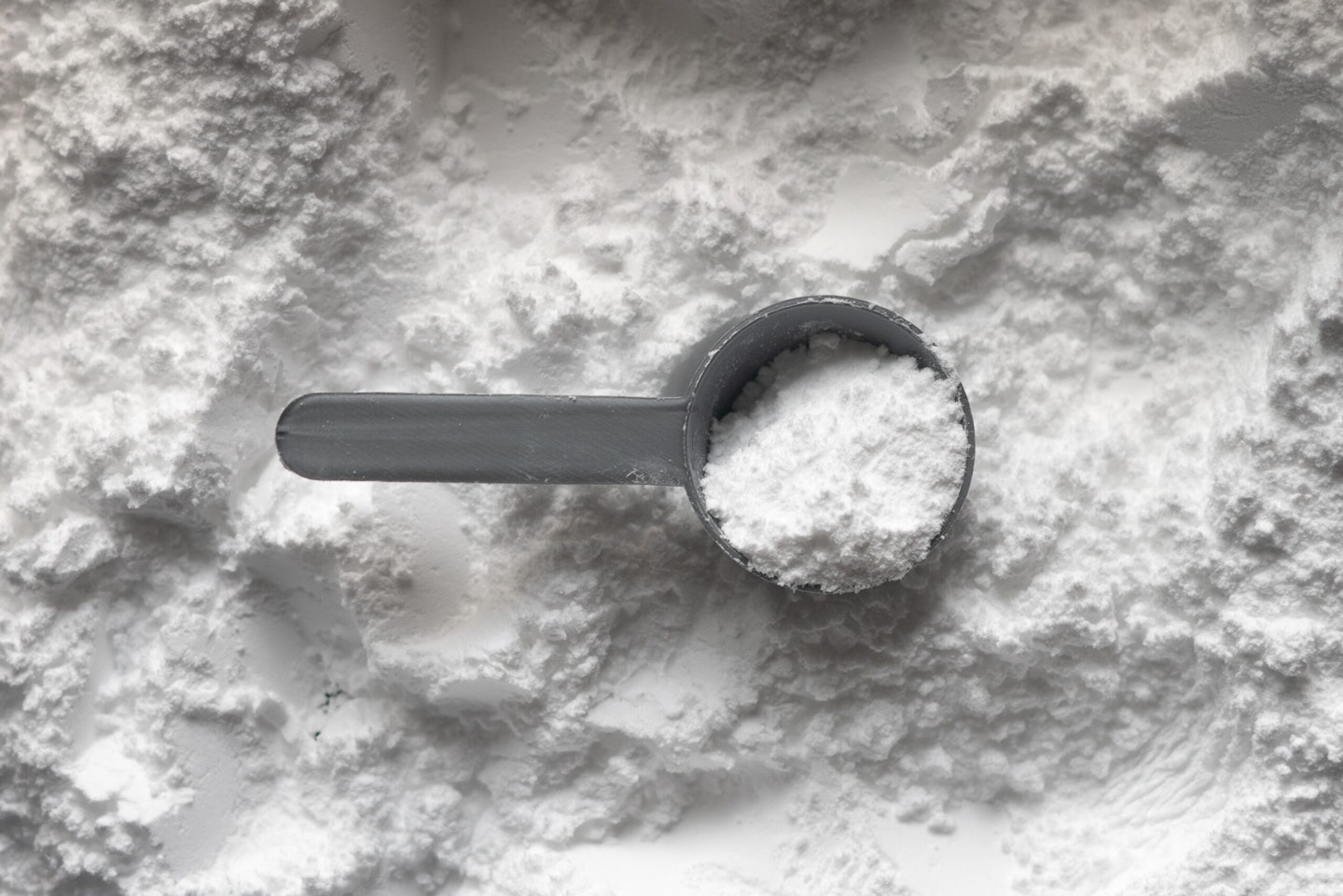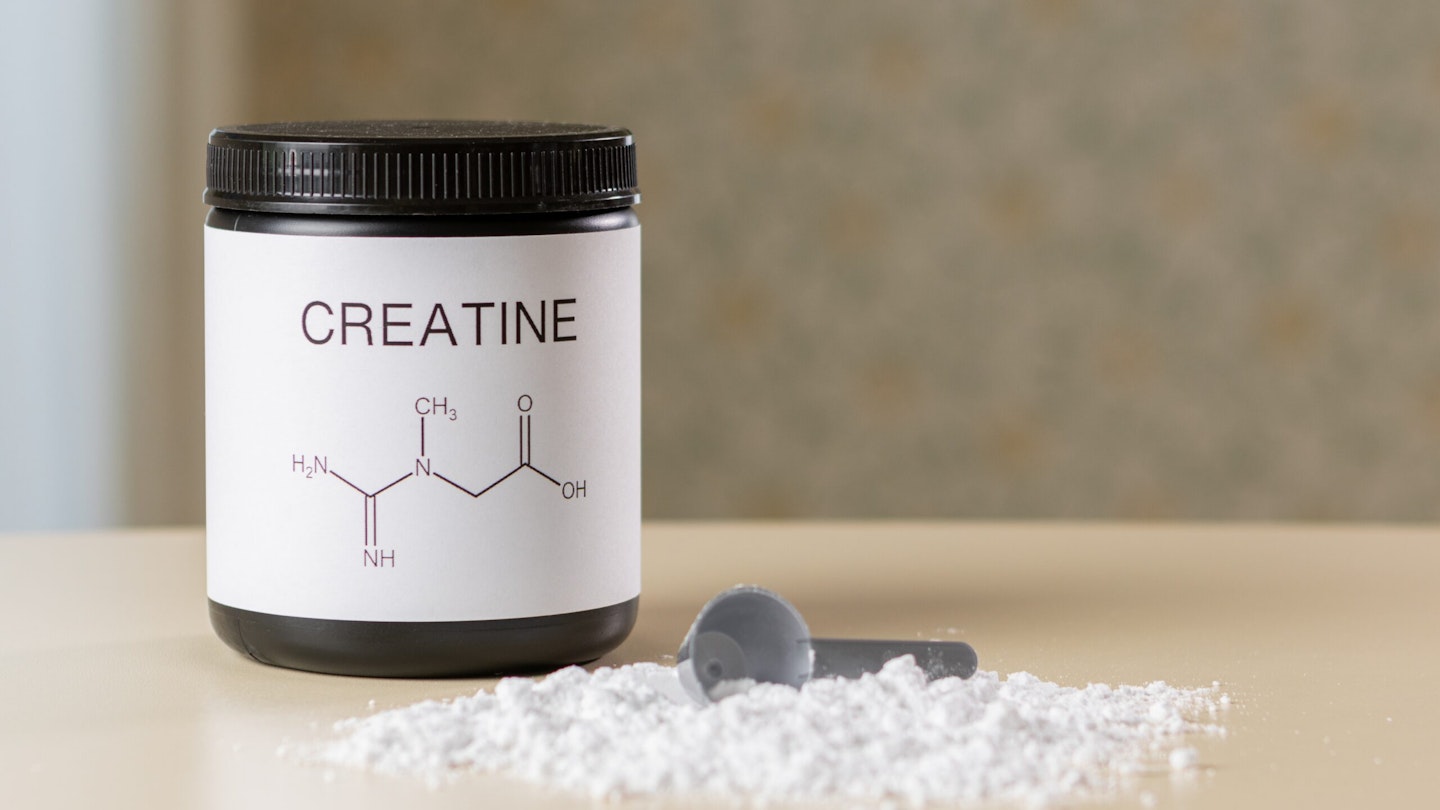Creatine, when discussed in most current contexts, refers to the sports supplement that can increase performance and encourage muscle development. It’s one of the most popular supplements in modern sports science, and it’s been said to have a wide range of health benefits.
Unlike most supplements though, there’s quite some debate on when you should actually take creatine. Should you take creatine before or after you work out? Therein lies our debate.
Supplements like protein powder and pre-workout don’t tend to have this issue. Pre-workout is in the name, you take it before you train. Protein powder is typically consumed in shake form after a workout in order to get fast absorbing protein into the muscles when they need them most (immediately after they've taken a beating).

What is creatine?
If we strip it down to the basics, creatine is no more than a substance found naturally in muscle cells. What it does is help your muscles produce energy during heavy lifting or high-intensity exercise. It’s a compound made up of three amino acids essential for muscle function, growth, and recovery.
In today’s world of nutritional supplements, creatine is one of the biggest names there is. Traditionally, you get many of your creatine stores from food, specifically red meat and seafood. Otherwise, the creatine is made in your liver and kidneys from amino acids.
Supplementing creatine is a great idea if you want to boost your performance and make concrete improvements to the way your muscles work and react. It’s an incredibly well-researched supplement and has been proven to have amazing results with rare to no side effects whatsoever.
Creatine before or after a workout?
One of the hottest debates on creatine is whether you should take your creatine before or after your workout. Now, to answer this, we need to understand how creatine actually functions. It’s not like a protein shake, where you’re ingesting something to have an immediate post-workout effect.
With creatine, it’s about keeping your levels high, you do this by taking the supplement every day. One of the arguments is that it doesn’t matter when you take creatine as long as it is regular and controlled.
A study carried out by the National Institute of Health compared the results of 19 bodybuilders who either took creatine before or after they trained. This study was carried out in a controlled environment where results could be found without any exterior factors able to complicate the verdict. The results came back leaning in favour of those bodybuilders who took creatine monohydrate post-session.
While you can’t argue with the results, you do have to acknowledge that this is just one study. This one study supports that there may be some advantages in taking creatine after you work out, but not an overwhelming one. Read up more on the actual study here.
Ultimately, you’re not doing yourself a detriment if you take creatine before, after, or even during your workout. You’re certainly not be missing out on mountains of gains from taking creatine at a certain time of the day. The only instance you’d be limiting the results of creatine would be if you took the supplement irregularly, at varying times, or sometimes missing days completely. You have to take creatine consistently and regularly. You could even consider creatine loading, which we touch on later in this article.
Benefits of creatine
There are plenty of benefits to creatine, there’s a reason it’s risen to such heights as a sports supplement. The main purpose is to saturate your muscles with energy so that they can perform better when put under stress. Creatine has solid effects for those familiar with weight training. You’ll be able to lift for longer periods of time, with far more energy than you would ordinarily.
These benefits have been researched and people around the world reap the rewards of creatine every day. There are some speculative benefits that exist which do require further scientific studies in order to determine how true they are. Some of the additional possible benefits include improved brain function and lower blood sugar levels.
Creatine loading
You might’ve heard of creatine loading amongst the sports supplement chatter, and trust us, it’s not as complicated or daunting as it might sound. Creatine loading is a technique used to ensure you get the most creatine in your system that you can, and that you maintain those levels.
Creatine loading entails taking high doses of creatine for five to seven days (loading phases), moving on to lower maintenance doses. This method ensures that there are always the right levels of creatine in your system to support a regular training lifestyle.

Which creatine is best?
There are a few options out there when it comes to which creatine you opt for. The one that’s talked about the most and that’s been researched the most is creatine monohydrate. It’s the number one creatine supplement today mainly for the clarity there is for how it works, but also due to its high absorption rate too. You can get creatine in many forms, from effective creatine powders, to tablets, and even gummy sweets.
Can creatine cause hair loss?
This is a question that’s been posed in recent years in regard to creatine use: Does it cause hair loss? The short answer is no, it doesn’t. This conversation started after a study in 2009 concluded that creatine supplementation is associated with an increase in a hormone called DHT, which can contribute to hair loss. However, there have been no concrete studies since that remotely lean into this argument.
Is creatine safe?
Yes, creatine is perfectly safe. In fact, it’s one of the most well-researched supplements that you can get on the market today. Creatine upholds all the promises from a sports science standpoint, but it’s also been claimed that it could have additional health benefits too. Some of these benefits include possible lowering of blood sugar and improving brain functions, but these areas still require further research to be concrete.
Jack Barrell is a Tech and Fitness Writer and Reviewer for What’s the Best. He is invested in the entertainment space and also keeps well in the loop with the latest sports and exercise trends too. On his off days, Jack can usually be found either in the gym – or watching his favourite Star Wars for the thousandth time.
Subscribe to the What’s The Best Newsletter to keep up to date with more of the latest reviews and recommendations from the rest of the What’s The Best team.
